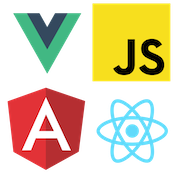ES2015 Class in AngularJS Controllers and Services
AngularJS 1.x still has a long life ahead of it even with the beta launch of Angular. If you have a large existing Angular 1 application you will want to slowly convert you application over time to use ES6/ES2015 or TypeScript. This will help make some of the transition to Angular even easier and give you benefits of using ES2015 syntax.
To start using ES2015 you can use a transpiler which helps convert ES2015 code to ES5 code that can run in all the browsers. There are many transpilers but Babel and TypeScript are by far the most popular. So this post we will cover a few simple examples of converting our Angular app to use ES2015 Classes.
Services
The first example we will try is converting a Factory Service to a Service using a class. Our BaseService has a data store property and one method loadData.
(function() {
'use strict';
angular.module('app').factory('baseService', baseService);
function baseService() {
var data = {
items: []
};
var service = {
data: data
loadData: loadData
}
return service;
function loadData() {
data.items = ['one', 'two', 'three'];
}
}
}());Now take a look at the ES2015 Class example.
(function() {
'use strict';
class BaseService {
constructor() {
this.data = {
items: []
};
}
loadData() {
this.data.items = ['one', 'two', 'three'];
}
}
angular.module('app').service('BaseService', BaseService);
})();We have a constructor that initializes our data store. Next we have one method on our service for populating this data store. This would be commonly where your service would call a web service to fetch data. Next lets take a look at our Controller that will be converted to use a ES2015 Class
Controllers
(function() {
'use strict';
angular.module('app').controller('BaseController', BaseController);
BaseController.$inject = ['baseService'];
function BaseController(baseService) {
var vm = this;
vm.data = baseService.data;
vm.onClick = onClick;
function onCLick() {
baseService.loadData();
}
}
})();Notice we are binding our properties to this and not to $scope. Using the controllerAs syntax we can write cleaner code that does not rely on $scope which no longer is needed in Angular 2+ and later. The controller is fairly straight forward it adds a property with our service data and a single function for a click event. Next lets look at the same service but using a ES2015 class.
(function() {
'use strict';
class BaseController {
constructor(BaseService) {
this._baseService = BaseService;
this.data = this._baseService.data;
}
onClick() {
this._baseService.loadData();
}
}
BaseController.$inject = ['BaseService'];
angular.module('app').controller('BaseController', BaseController);
})();The class based controller is a bit simpler now. We have a constructor for initializing our properties and our click function is a method on our BaseController class. Also note our controller and services are registered after the class is defined. ES2015 Classes are not hoisted so if the are referenced before we define them we get a reference error.
Now our controllers and services are using ES2015 classes and are that much closer to looking like the latest Angular style components and services. A working demo of this post can be found by clicking the demo link below. Note using native non transpiled classes, this is not supported in Angular 1 just yet but it is in the works. See this GitHub Issue.

